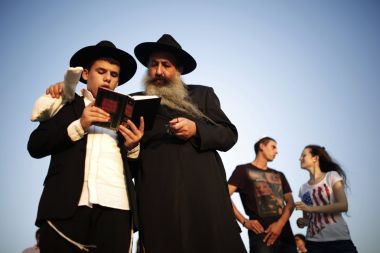Ofsted condemns London Jewish schools for 'narrow' view of women
Two Orthodox Jewish schools in London have been criticised for providing books in which "images of females had either been erased or radically changed".

Ofsted inspectors said pupils at Yetev Lev, one of the largest Jewish schools in Stamford Hill, had a "very narrow view about the role of women in society". The prep school has 794 boys between the ages of three and 13 and most lessons are taught in Yiddish.
The school's leaders "refused to allow pupils to talk to the female inspectors on a formal basis", according to the Ofsted report and there were limited opportunities to interact with others "outside of their close community".
However the school's leadership told inspectors they had "no intention of providing pupils with experiences to enable them to acquire an appreciation of and respect for differences between people, based on culture, religion, sex and sexual orientation".
The problem was not limited to Yetev Lev, according to the inspectors. Another boys' junior school in Stamford Hill, Beis Aharan, was also criticised by inspectors for obscuring images of children swimming and of women and girls in short-sleeved clothing, according to the Guardian.
The word "Christmas" was also crossed out in a book used in a Year 4 lesson.
"The majority of pupils still express views about the roles of women and men that indicate that the school does not prepare them for the reality of life in modern British society.
"Pupils universally consider that the role of women is to 'look after children, clean the house and cook', while men go to work," said the Ofsted report.
"The social and cultural development of pupils still does not promote fundamental British values. While pupils are polite to visitors, they are still unable to show mutual respect and tolerance of those with different faiths and beliefs because their knowledge of how people are different and of other faiths is very limited."











